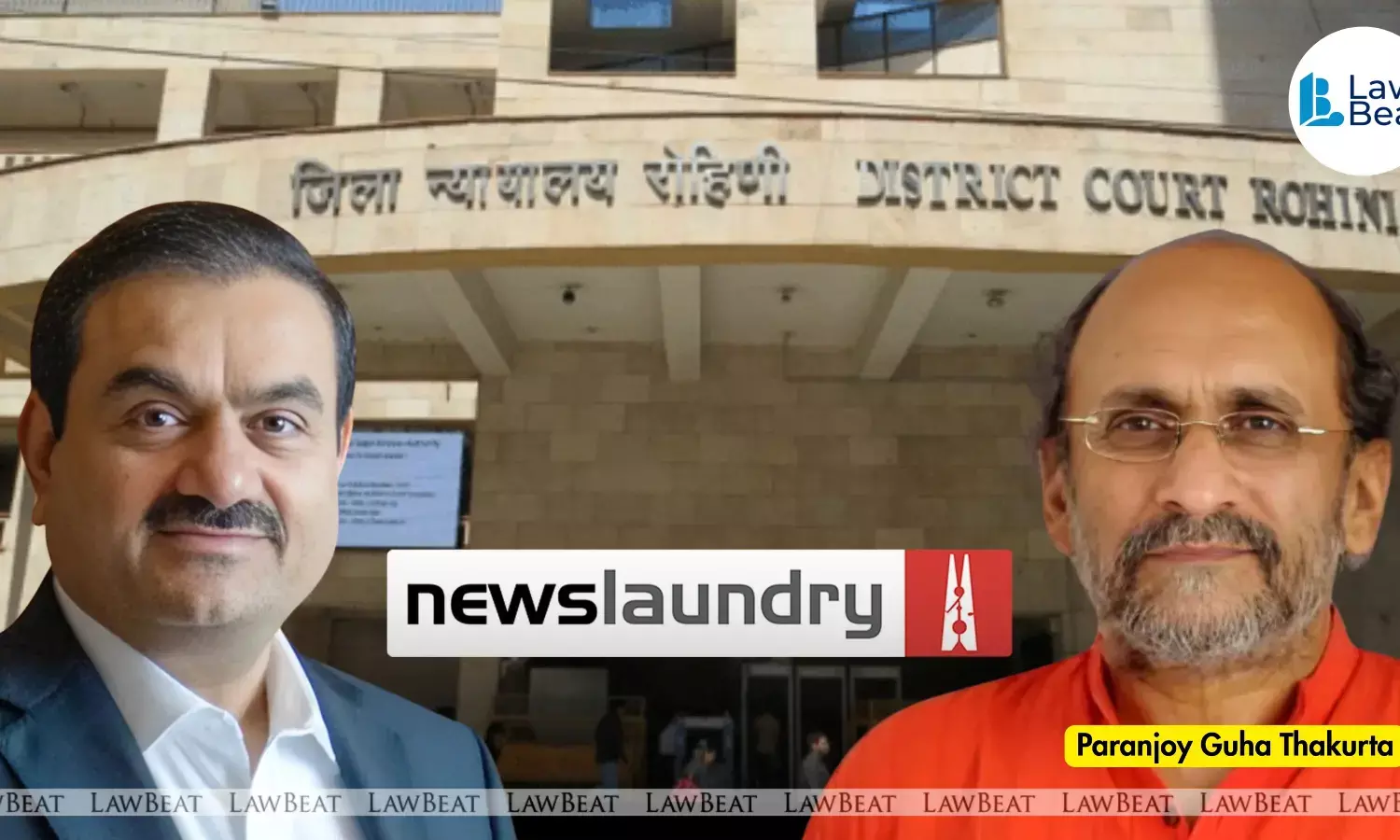Delhi Court Declines Transfer of Paranjoy, Newslaundry Appeals in Adani Gag Order Case

Court orders that the matter be listed on September 24
The Principal District and Sessions Judge at Rohini Court on Tuesday declined to transfer the appeals filed by journalist Paranjoy Guha Thakurta and digital news platform Newslaundry against an ex-parte gag order restraining reporting on Adani Enterprises Limited, keeping the matters with District Judge Sunil Chaudhary.
Principal District and Sessions Judge Gurvinder Pal Singh observed that since arguments in Paranjoy’s appeal had already been advanced before Judge Chaudhary, it was appropriate that the matter remain with him.
Earlier, Judge Chaudhary had reserved judgment in Paranjoy’s appeal but later recused, citing an order by District Judge Ashish Aggarwal, who had quashed the same gag order in relation to four other journalists. Chaudhary then referred the appeals back to the Principal Judge for possible reassignment to Judge Aggarwal.
Initially, Judge Singh indicated that “propriety demands that order be passed by similar judge.” However, during the hearing, he questioned Advocate Apar Gupta, appearing for Paranjoy, “Do you have difficulty if the appeal is heard by District Judge Sunil Chaudhary? When arguments were advanced and hearing was done, then why do you want the hearing to be heard afresh?”
Gupta expressed concern about potential inconsistencies between orders of the two judges. Judge Singh responded, “You show the other court’s order. One is already decided. The appellate court (Judge Chaudhary) will have benefit of the other court. It will become wiser.”
Following this exchange, Gupta agreed, provided the appeal was heard expeditiously.
The Principal Judge then directed that Paranjoy’s appeal be placed back before Judge Chaudhary, with the next hearing scheduled for September 24.
A similar order was passed in Newslaundry’s appeal, which is yet to be argued. The Court noted that counsel had “full faith” in Judge Chaudhary’s court and consented to the matter being heard there.
While clarifying that Judge Aggarwal had already quashed the impugned gag order dated September 6 in respect of four journalists, Judge Singh emphasized that the appellants in these connected appeals must still present their submissions for adjudication.
Notably, on September 18, the Court had reserved its order on the plea filed by senior journalist Paranjoy Guha Thakurta challenging a civil court’s injunction that barred him from publishing articles about the Adani Group and its companies. However, the Appeal has now been transferred to Judge Aggarwal and will be heard afresh.
Senior Advocate Trideep Pais appeared for Guha. Pais had attacked the impugned order as “overbroad and unreasoned,” stressing that it not only prohibited publication against Adani Enterprises but also extended to group companies not even party to the suit. He had argued that the order effectively allows Adani to act as “judge in its own case,” since it leaves the determination of what is defamatory to the plaintiff.
“The injunction order doesn’t specify which words or passages are defamatory. It simply records submissions of the plaintiff as if they were findings. Articles from 2017 and even one-year-old reports have been clubbed together, and intermediaries have been directed to remove any content that the plaintiff claims is defamatory,” Pais had told the court. He had submitted that the civil court judge failed to apply the test for defamation and that an injunction cannot be granted without reasoned findings.
Countering the appeal, Senior Advocate Anurag Ahluwalia for Adani enterprises had argued that Guha’s articles were consistently defamatory, creating an impression that Adani was manipulating the government and damaging its market reputation. Reading excerpts, he had pointed to references comparing Adani to Elon Musk and alleging undue influence on government policies.
“This is not fair journalism. These repeated publications are aimed at tarnishing reputation. There has to be a stop to this kind of reporting, which affects investors and the market,” Ahluwalia had submitted.
The Court had questioned the basis of the ex parte injunction and asked whether the impugned order had provided any reasoning for concluding the articles were defamatory. “Until a declaration is made that material is defamatory, how can such a sweeping injunction be justified?” the judge had remarked.
Notably, on September 6, the order was passed by SCJ-cum-RC Anuj Kumar Singh of Rohini Courts in a fresh civil suit filed by AEL alleging that targeted defamatory campaigns by reporters, activists, and certain organizations had severely damaged the Group’s global reputation, hindered its projects, and shaken investor confidence. The Court had registered the suit, issued summons to the defendants, and directed service through ordinary process, registered post, electronic means including WhatsApp and email, as well as dasti service. The Court had held that Adani had demonstrated a prima facie case, with balance of convenience in its favour, since continued circulation of unverified articles could further tarnish its reputation and cause irreversible loss to investors and stakeholders.
